|
|
|
|
|
|
|
|
|
|
|
|
|
 |
 |
 |
 |
|
 |
 |
|
|
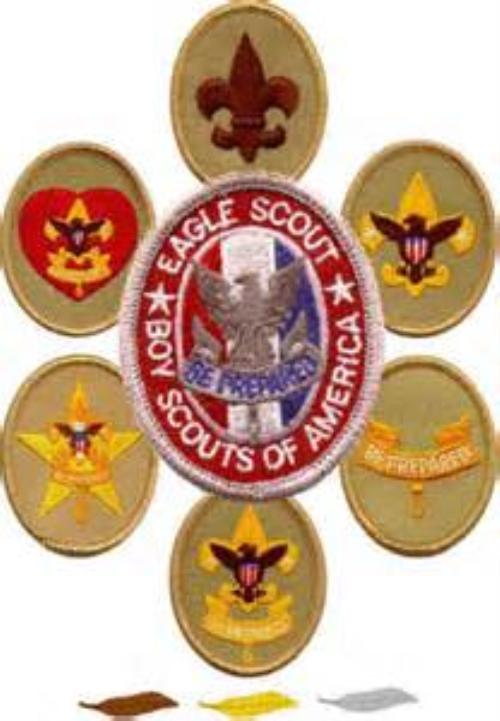
The road to Eagle Scout is a long journey designed to not only teach boys the basic skills of Scouting and the outdoors but also to instill in them character, leadership, discipline, and personal responsibility. Scouts progress through a series of rank advancements. Early ranks are designed to introduce boys to the foundational skills and principles of Boy Scouting. These early ranks also teach them the importance of cooperation and working with and relying upon others in their unit and patrol. The later ranks focus on the development of leadership and community service as well as the fine tuning of the boys' Scouting skills through the earning of subject specific merit badges. Everything done to advance and earn these ranks, from joining until leaving the program, is designed to help boys have an exciting and meaningful experience in Scouting. Scouting skills - what a boy knows how to do - are important, but they are not the most important aspect of advancement. Scouting's concern is the total growth of boys to young men. This growth may be measured by how they live the Scouting ideals in their daily lives.
RANKS
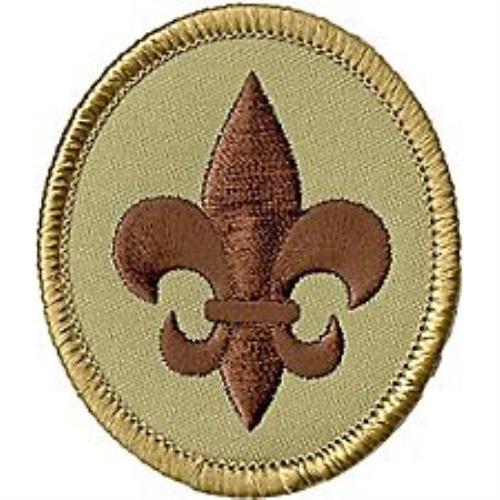 Scout Scout is the first step towards Eagle. It is actually not considered a rank in and of itself. To become a Scout requires a boy to meet the membership requirements, be officially registered in a troop, and have a basic understanding of the primary principles of Scouting including the Scout Oath and Law.
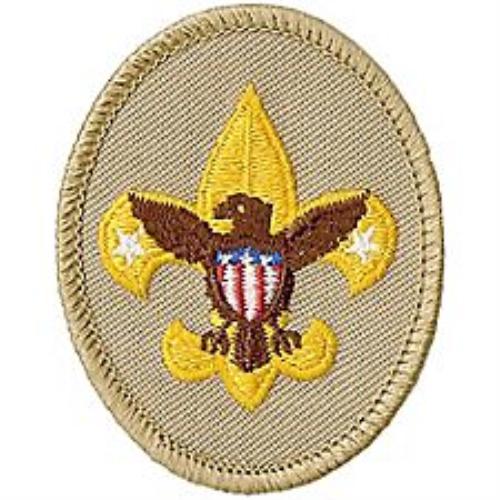 Tenderfoot Tenderfoot is the next step on the path to Eagle. Its objective is to introduce the scout to the basic areas of Scouting. Some achievements the scout must complete include: Going on a camping trip, Learning basic first-aid and knot-tying skills, Proving basic physical fitness, among several others.
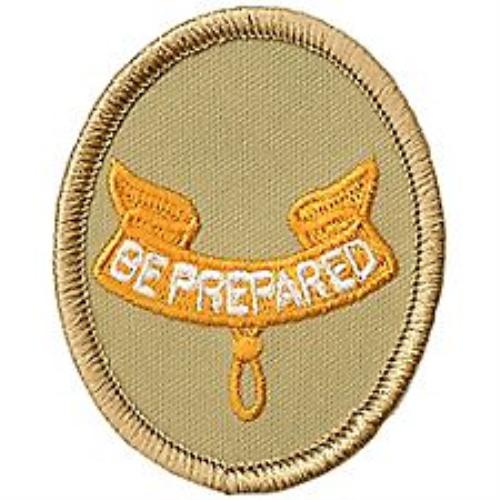 Second Class Second Class is the third step on the road to Eagle. Its objective is to continue to teach the scout more of the foundational skills of Boy Scouting. Some achievements the scout must complete for this rank include: Learning basic orienteering skills, Cooking for his patrol on a campout, Having an understanding of local plant and animal life, Learning more in-depth first-aid skills, among several others.
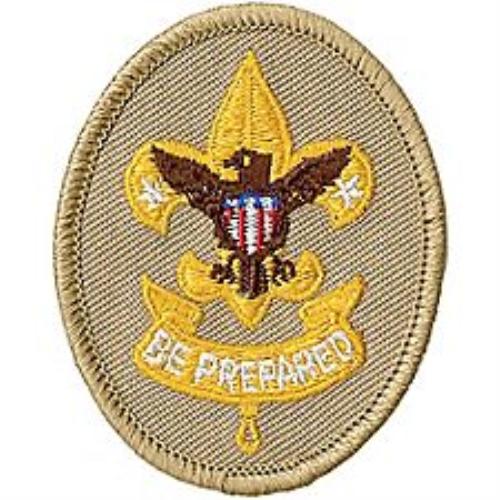 First Class First Class is considered the final rank of the early ranks which focus on instilling a knowledge of Scouting skills and principles in the scout. Some achievements the scout must master for this rank include: Demonstrating more in-depth orienteering skills, Learning basic lashing skills, Planning and cooking multiple meals for their patrol, Learning swimming and water rescue skills, among several others.
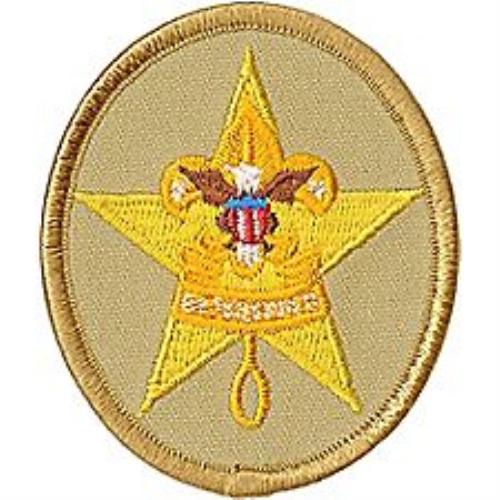 Star Star is the next rank a scout must achieve as they progress towards Eagle. With this rank, the focus shifts to developing leadership in the scout. The scout is required to hold a designated leadership position within the troop. The scout is required to participate in at least six hours of service project work. With this rank, the scout is also required to shift their focus towards the earning of merit badges. The scout must earn at least six merit badges with four of them being one of the "Eagle Required" designated merit badges.
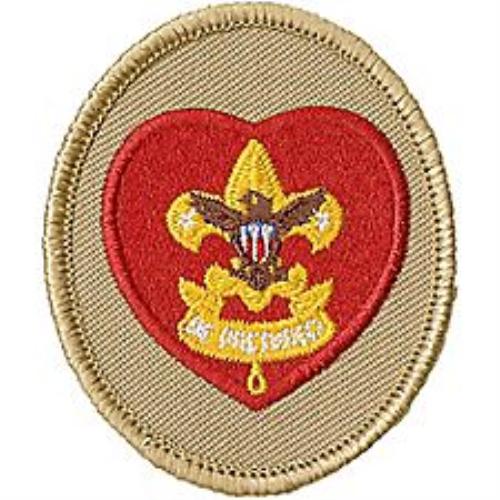 Life Life is the next rank on the road to Eagle. Like the Star rank, the focus is on the continued development of leadership and character in the Scout. The scout must hold a leadership position within the troop and complete at least six additional hours of community service project work. He must lead in the instruction of basic Scouting skills to younger boys in the troop. He must also earn five additional merit badges with three coming from the list of "Eagle Required" badges.
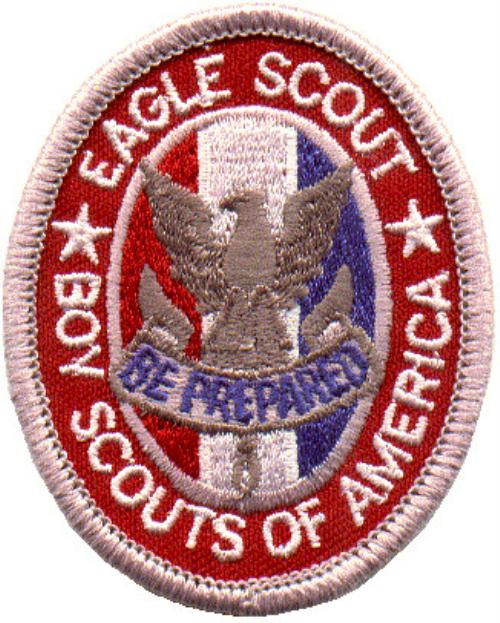 Eagle Eagle is the final rank in the Boy Scout program. It marks the completion of a long journey in which the scout has progressed from the learning of basic Scouting skills to the full development of leadership, discipline, responsibility, and character. To achieve the rank of Eagle, the scout must have earned a minimum of 21 merit badges with 14 of those coming the list of "Eagle Required" merit badges. He must have continued his leadership service in the troop for six months. He must also plan, organize, provide leadership in, and complete an approved community service project. A scout who is earning the rank of Eagle must also complete a review process of their Scouting career.
MERIT BADGES

Complete MB Listing
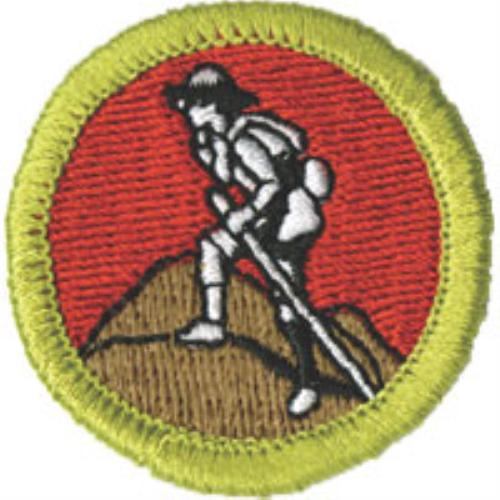
EAGLE SCOUT
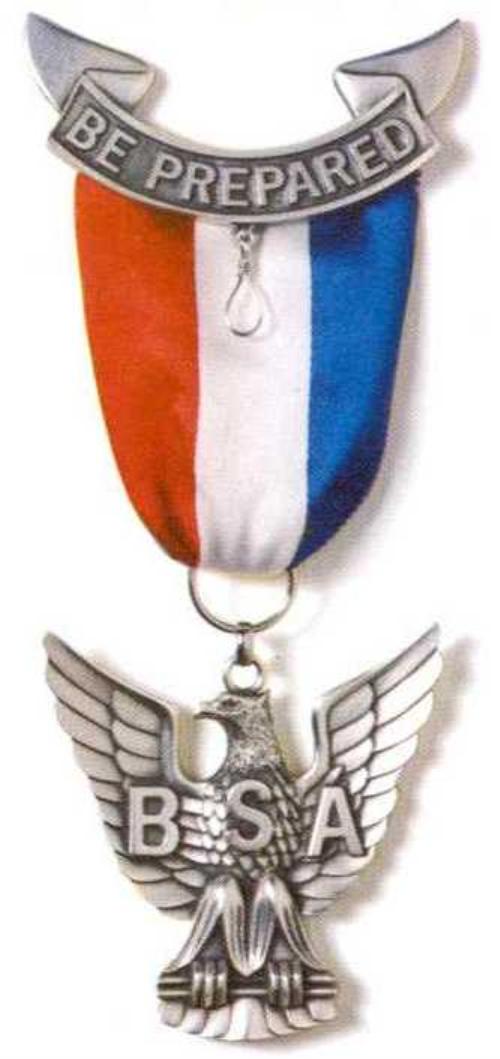
Eagle Scout rank requirements
|
|
- Be active in your troop, team, crew, or ship for a period of at least six months after you have achieved the rank of Life Scout.
- Demonstrate that you live by the principles of the Scout Oath and Scout Law in your daily life. List on your Eagle Scout Rank Application the names of individuals who know you personally and would be willing to provide a recommendation on your behalf, including parents/guardians, religious, educational, and employer references.
- Earn a total of 21 merit badges (10 more than you already have), including the following:
- a. First Aid
- b. Citizenship in the Community
- c. Citizenship in the Nation
- d. Citizenship in the World
- e. Communication
- f. Personal Fitness
- g. Emergency Preparedness OR Lifesaving*
- h. Environmental Science
- i. Personal Management
- j. Swimming OR Hiking OR Cycling*
- k. Camping, and
- l. Family Life
- * You must choose only one merit badge listed in items g and j. If you have earned more than one of the badges listed in items g and j, choose one and list the remaining badges to make your total of 21.
- While a Life Scout, serve actively in your unit for a period of six months in one or more of the following positions of responsibility. List only those positions served after your Life board of review date.
Boy Scout troop
Patrol Leader,
Assistant Senior Patrol Leader,
Senior Patrol Leader,
Venture Patrol Leader,
Troop Guide,
Order of the Arrow Troop Representative,
Den Chief,
Scribe,
Librarian,
Historian,
Quartermaster,
Junior Assistant Scoutmaster,
Chaplain Aide,
Instructor,
Webmaster, or
Leave No Trace Trainer. |
Varsity Scout team
Captain,
Cocaptain,
Program Manager,
Squad Leader,
Team Secretary,
Order of the Arrow Team Representative,
Librarian,
Historian,
Quartermaster,
Chaplain Aide,
Instructor,
Den Chief,
Webmaster, or
Leave No Trace Trainer. |
Venturing crew/ship
President,
Vice President,
Secretary,
Treasurer,
Quartermaster,
Historian,
Den Chief,
Guide,
Boatswain,
Boatswain's Mate,
Yeoman,
Purser,
Storekeeper,
Webmaster, or
Leave No Trace Trainer. |
- While a Life Scout, plan, develop, and give leadership to others in a service project helpful to any religious institution, any school, or your community. (The project should benefit an organization other than Boy Scouting.) The project proposal must be approved by the organization benefiting from the effort, your unit leader and unit committee, and the council or district before you start. You must use the Eagle Scout Leadership Service Project Workbook, BSA publication No. 521-927, in meeting this requirement. (To learn more about the Eagle Scout service project, see the Guide To Advancement, topics 9.0.2.0 through 9.0.2.15.)
- Take part in a unit leader conference.
- Successfully complete an Eagle Scout board of review. In preparation for your board of review, prepare and attach to your Eagle Scout Rank Application a statement of your ambitions and life purpose and a listing of positions held in your religious institution, school, camp, community, or other organizations, during which you demonstrated leadership skills. Include honors and awards received during this service. (This requirement may be met after age 18; see below.)
Official notes (part of the rank requirements)
AGE REQUIREMENT ELIGIBILITY. Merit badges, badges of rank, and Eagle Palms may be earned by a registered Boy Scout, Varsity Scout, or Venturer. He may earn these awards until his 18th birthday. Any Venturer who achieved the First Class rank as a Boy Scout in a troop or Varsity Scout in a team may continue working up to his 18th birthday toward the Star, Life, and Eagle Scout ranks and Eagle Palms. An Eagle Scout board of review may occur, without special approval, within three months after the 18th birthday. Local councils must preapprove those held three to six months afterward. To initiate approval, the candidate, his parent or guardian, the unit leader, or a unit committee member attaches to the application a statement explaining the delay. Consult the Guide To Advancement in the case where a board of review is to be conducted more than six months after a candidate’s 18th birthday.
If you have a permanent physical or mental disability, or a disability expected to last more than two years, or beyond age 18, you may become an Eagle Scout by qualifying for as many required merit badges as you can and qualifying for alternative merit badges for the rest. If you seek to become an Eagle Scout under this procedure, you must submit a special application to your local council service center. Your application must be approved by your council advancement committee before you can work on alternative merit badges.
-
A Scout or Venturer with a disability may work toward rank advancement after he is 18 years of age if he meets the guidelines outlined in the Guide To Advancement.
|
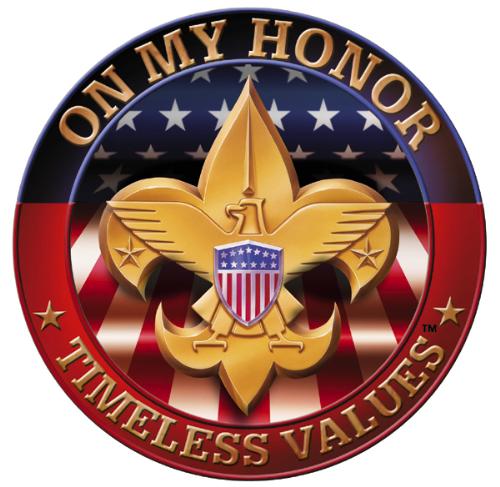
|
|
 |
 |
|
 |
 |
 |
 |
|
|
|
|
|
|
|
|
|